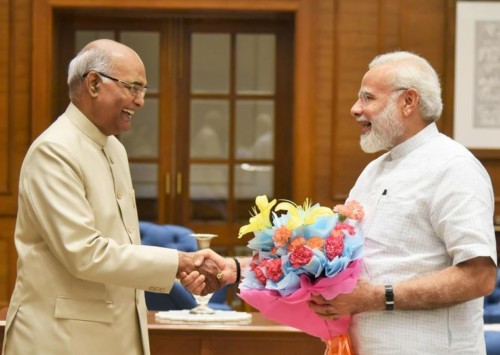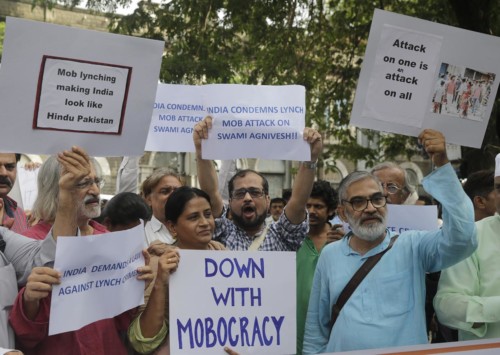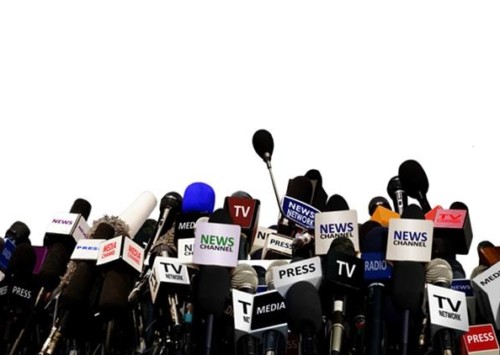Is Facebook censoring political content in India?

According to Facebook Global Government Request Report, the Indian government requested Facebook for data 9,853 times in the first half of 2017
According to reports Facebook accounts of 10 journalists were temporarily suspended in the month of September.
In 2016 Facebook, the social networking site gained huge criticism for its conduct in the run-up to the United States presidential elections after it emerged that political consultation firm Cambridge Analytica had accessed the private information of 87 million Facebook users world-wide for targeted political advertising.
The 2019 general elections in India are drawing near and political parties, media and the general public is using the digital space to express their views. However, after the 2016 mishap Facebook does not want to be in news again for all the wrong reasons. Therefore the company earlier this year had ensured that the social media platform won’t be misused to influence elections in India and elsewhere. However, there have been media reports since August that the site is temporarily suspending accounts, labelling news as “spam” and not permitting news organisations to promote their article.
According to the latest Facebook Global Government Request Report, published every six months, the Indian government requested Facebook for data 9,853 times in the first half of 2017 – up from 6,324 times in the first half of 2016. Facebook restricted 3,142 pieces of Indian content in 2017. In 2016, 2,034 such requests were made– an average of 15 posts every two days. It was second only to France, which made 2,896 requests, while the United States topped the list in seeking information on user data.
Censoring contents ahead of elections?
According to reports, Facebook accounts of 10 journalists were temporarily suspended in the month of September. The online journalists affected include Rifat Jawaid of Janata Ka Reporter, Prema Negi and Ajay Prakash of Janjwar and several employees of Caravan Daily and Bolta Hindustan. All the media outlets are news portals.
“Our Facebook page was blocked for a while last year after we broke the Rafale scam, and it was restored after we protested on social media. I don’t post anything inflammatory. On September 27, minutes after I posted something on the Ayodhya verdict, my account was disabled. It was restored in a day after I wrote to the nodal officer…. They did not remove the Ayodhya post,” Jawaid who was associated with the BBC earlier, told an Indian media.
In August The Caravan, an Indian magazine had published an article saying that that Facebook had declined its request to boost its story on BJP national president Amit Shah, mortgaging two of his properties to warrant a credit facility loan from a cooperative bank for his son Jay Shah’s firm Kusum Finserve LLP.
This is not just the case this year, last year too on September 26, Facebook blocked the account of journalist Mohammad Anas for 30 days after he shared a photograph of a trader’s cash memo with a message at the bottom that read- “Kamal ka phool hamari bhool “(It was our mistake to vote for the lotus). The lotus being BJP’s party symbol.
There are many people who believe that the social media site is specifically blocking contents that criticise the Indian government and the Hindutva groups (an ideology seeking to establish the hegemony of Hindus).
Humans of Hindutva – which shares satirical posts criticising the BJP government – uploaded a screenshot of a warning message it had received from Facebook on September 27, last year. The message said the moderator could be asked to reveal his or her identity if it continued to share content similar to the one against which the site had received a complaint. The post in question, titled “Come take a ride on India’s bullet train” was a graphical representation of a real bullet with the photographs of Mahatma Gandhi, Gauri Lankesh, MM Kalburgi, Govind Pansare and Narendra Dabholkar. Facebook later took down the post.
While responding to the queries of an Indian media Facebook said, “Our systems are placed on high alert to prevent coordinated inauthentic behaviour on the platform ahead of elections. This protocol is in place for election-bound countries such as Brazil, US mid-term elections, Mexico, Italy and India. When operating at scale, some pages and accounts are flagged wrongly. However, we have an appeals process in place whereby such wrongly flagged accounts can appeal our decision.”
Not just the media organisation but political parties too have accused Facebook for suspending its accounts. Earlier in October, Trinamool Congress complained that two of its Facebook pages – Trinamool Community Supporters and Trinamool Congress Community Force, with a combined following of 5, 00,000 were temporarily suspended.
Indian lawmakers ensuring regulatory measures
India’s home ministry has told global internet and social media firms such as Google, Facebook, WhatsApp and Twitter to have local grievance officers, develop a monitoring mechanism to remove objectionable contents and share information promptly with law enforcement agencies. After a meeting on October 24, the ministry conveyed this to companies after concerns were raised over these platforms being used to spread rumours, cyber crime and other activities detrimental to national interest.
Between July and December 2017, the Indian government made 315 Twitter account information requests, up from 261 made during the January-June period, and asked the micro-blogging website to remove 144 accounts, up from 102 from the previous period.












